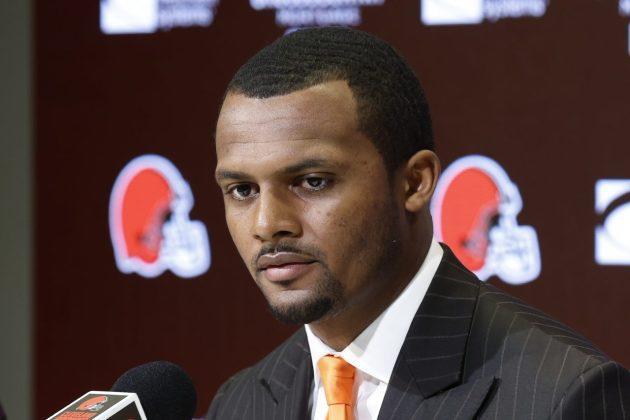
Cleveland Browns quarterback Deshaun Watson recently avoided criminal charges over allegations that he assaulted massage therapists, but 22 civil lawsuits against him stand, and in two of them, theories of unlawful acts have expanded. The further the litigation goes, the more insight for the NFL, which could punish Watson at any time.
On April 4, two of the massage therapists filed amended petitions adding a cause of action for negligence and gross negligence. Negligence refers to unreasonable conduct by a defendant who owes duty of care to the plaintiff and, in breaching that duty, harms the plaintiff. Gross negligence refers to reckless conduct that also breaches a duty and causes harm. The previous causes of action against Watson are predicated on intentional or knowing misdeeds, including assault and infliction of emotional distress.
More from Sportico.com
The therapists’ attorney, Tony Buzbee, contends that Watson (1) owed a duty of reasonable care to the therapists and (2) breached that duty by, among other alleged acts, scheduling a massage to be alone with therapists despite “knowing of his own sexual proclivities,” failing to warn therapists of those “proclivities,” and exposing and touching himself while in the therapists’ presence. Watson’s attorneys, who include famed Texas litigator Rusty Hardin, will likely argue that these allegations are false, that as a customer/client Watson owed no applicable duty of care, or that if he owed such a duty, he met it.
Buzbee will likely use the additional claims to seek expanded discovery regarding Watson’s off-field behavior and communications. Even if assault can’t be proven, Buzbee can argue, Watson was still unreasonable in his behavior given what Watson knows about himself. Buzbee could demand that Watson answer more questions about his personal life and turn over a wider scope of emails and texts. Whether Buzbee can obtain that information will depend on how far the lawsuits advance.
A recent ruling by the presiding judge, Rabeea Collier, has further expanded Watson’s risks. She ordered that Watson provide sworn testimony on whether he had sex with any of the 18 therapists who have worked with Watson and have publicly supported him.
If Watson lies, he could be subject to criminal perjury charges. If he admits to having sex, the admission will invite questions as to whether his payments were for therapy or sex, the latter of which could suggest prostitution. If Watson invokes his Fifth Amendment privilege against self-incrimination, he’ll invite questions as to what incriminating conduct might have occurred. And if Watson simply doesn’t answer, Judge Collier could find him non-compliant and issue judgment for the therapists.
Many have wondered why Watson, who recently signed a $230 million contract, doesn’t reach financial settlements with his accusers. Settlements would provide disclosure in the court of law, though not necessarily in the court of the NFL.
As explained by Sportico, there are several possible reasons, starting with the accusers: They might not want to settle. The accusers detail horrific acts and, in the pursuit of justice, have asked the legal system to confirm what they say happened. They might only accept settlements in which Watson admits to harming them—an admission that would make it more likely the NFL suspends Watson for an extensive period. To that point, Watson might be worried about settling if doing so would increase the suspension odds.
Meanwhile, the NFL’s ability to investigate Watson is limited. Unlike a court, the NFL lacks subpoena power and can’t compel witnesses to testify under oath or share evidence. But the league can rely on the fruits of the courts’ discoveries.
Whether the NFL suspends Watson, and if so for how long, is entirely up to the league. A disciplinary officer jointly appointed by the NFL and NFLPA will make the initial decision, and that decision will be subject to possible review by commissioner Roger Goodell.
The NFL isn’t bound by the legal system’s resolution on criminal and tort law implications. The league will instead ask a question sounding in labor and employment law: Did Watson violate his contract and the CBA by engaging in conduct detrimental to the NFL? The league—not a judge or jury—will answer.
The NFL has a history of suspending players for alleged personal misconduct when they weren’t charged with (let alone convicted of) a crime. Jarran Reed, Ezekiel Elliott and Ben Roethlisberger were each suspended six games (Roethlisberger’s suspension was later reduced to four games). Whether Watson fits into that category remains to be seen.
Best of Sportico.com
